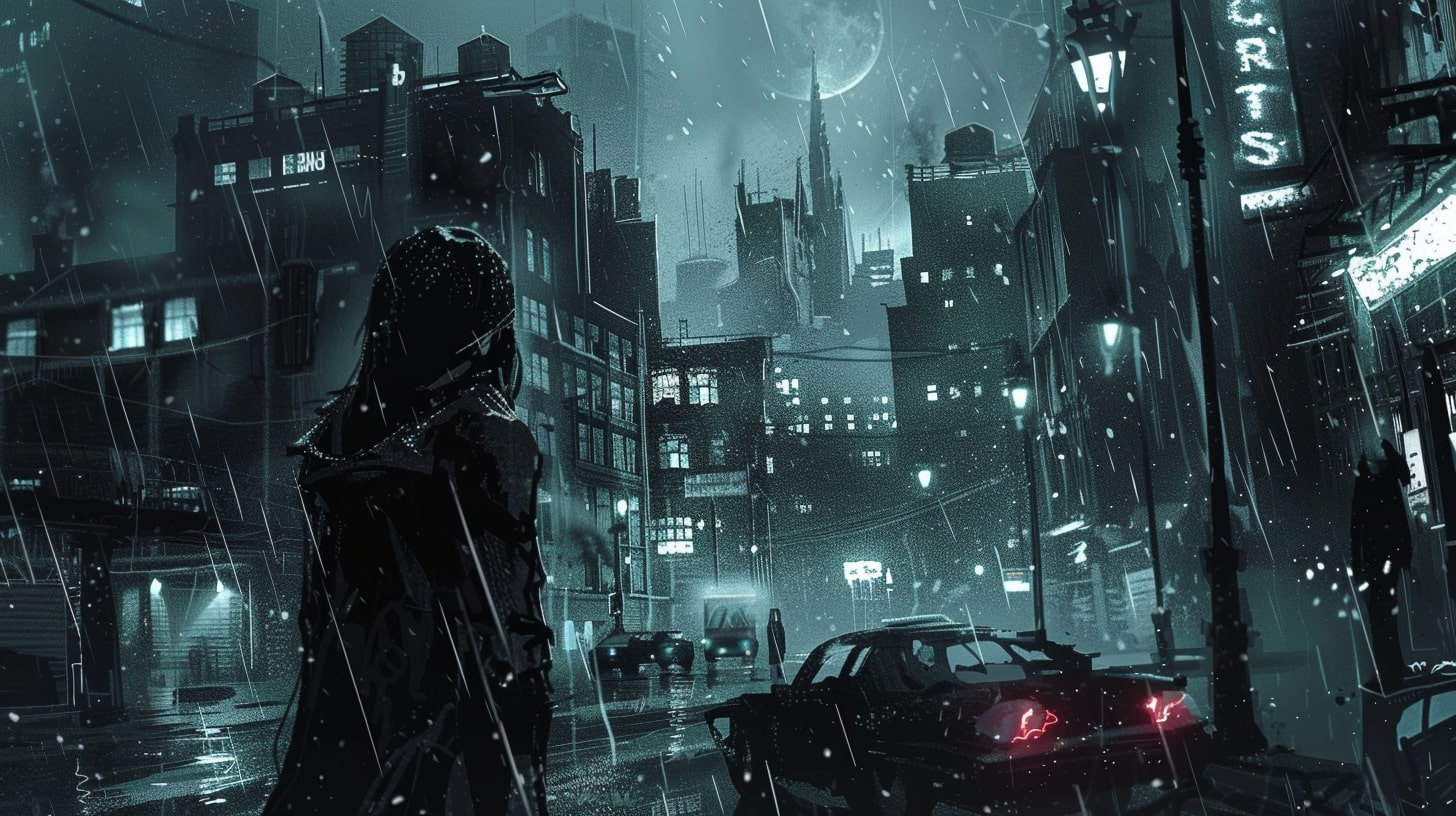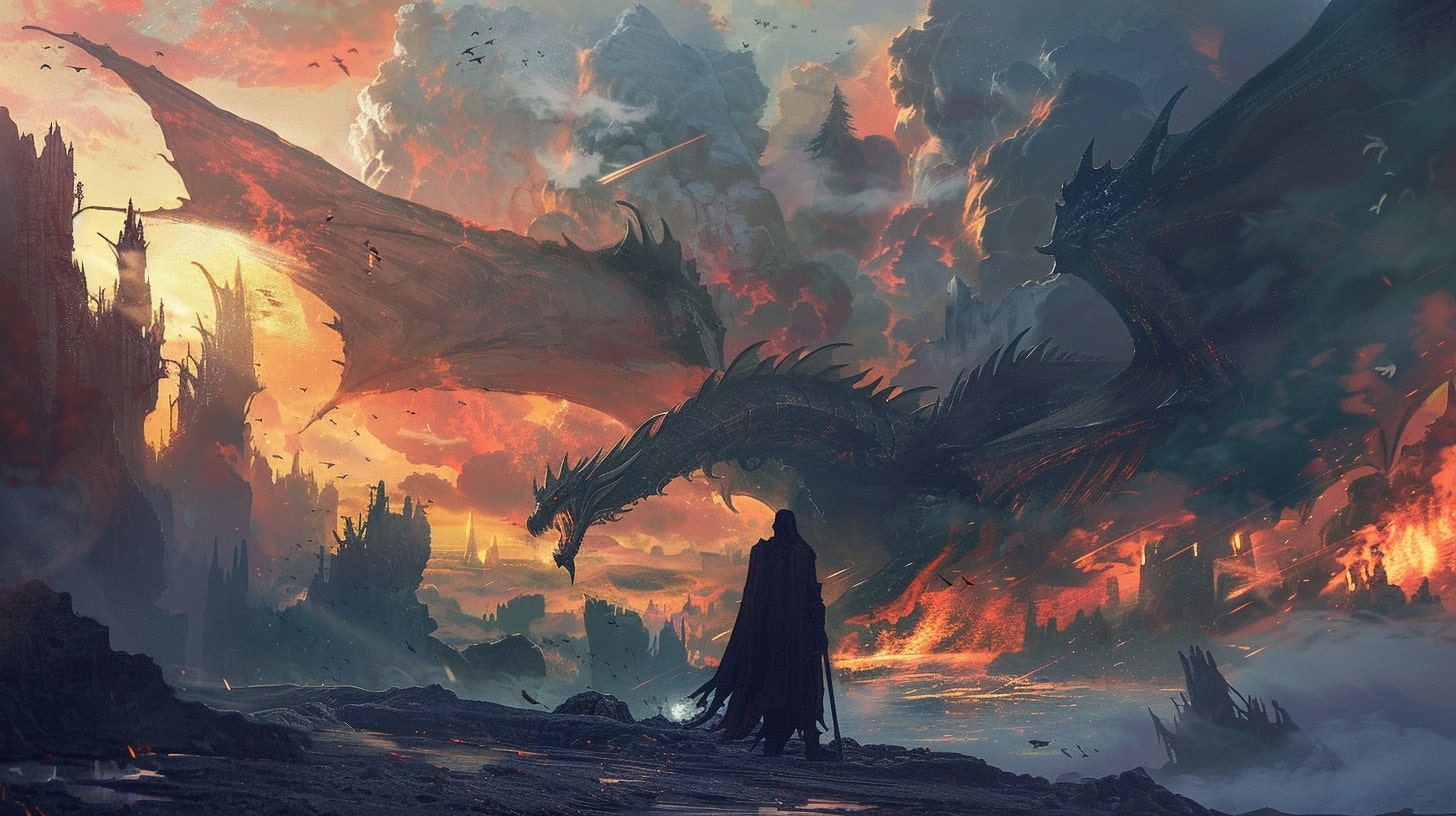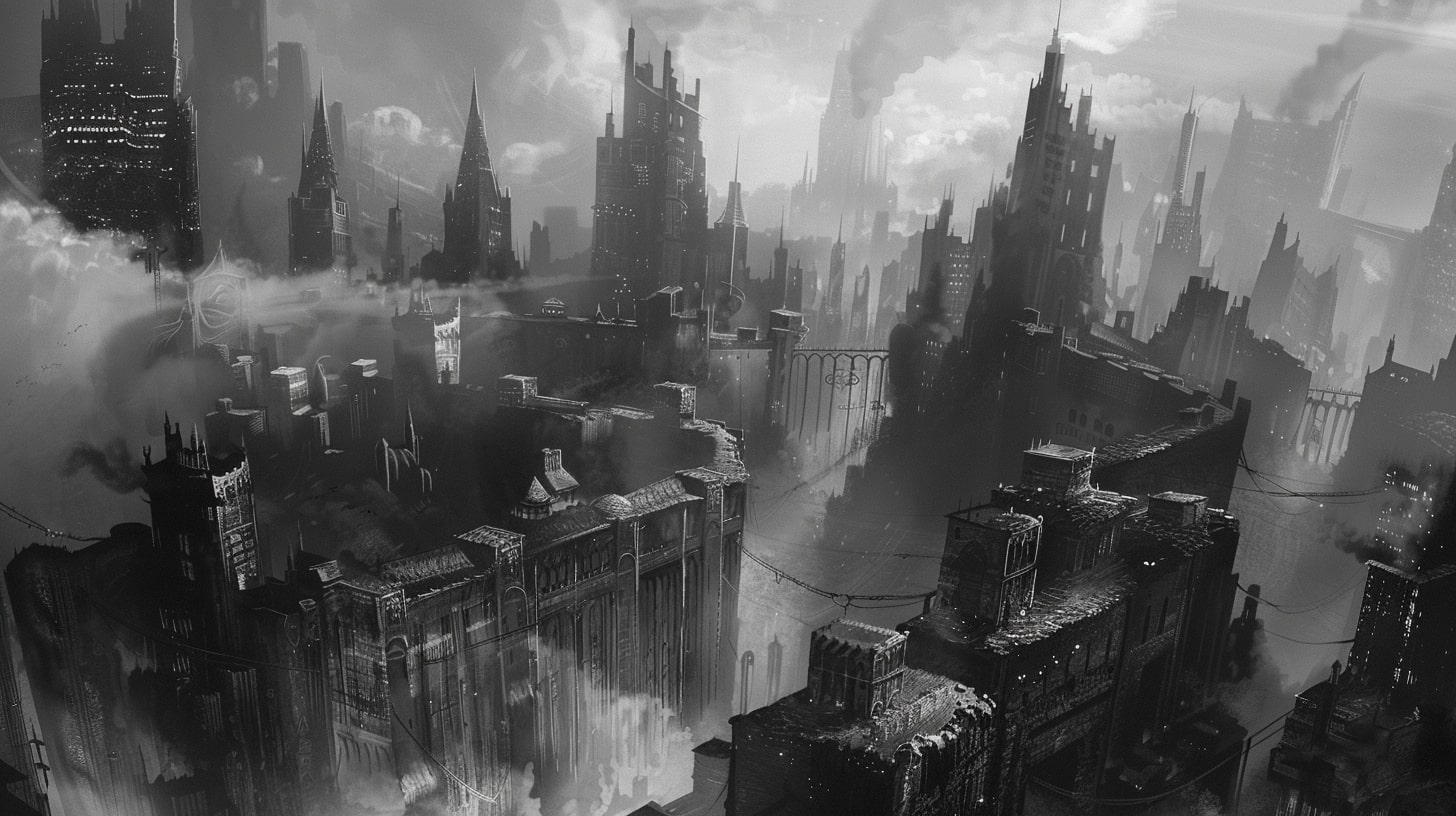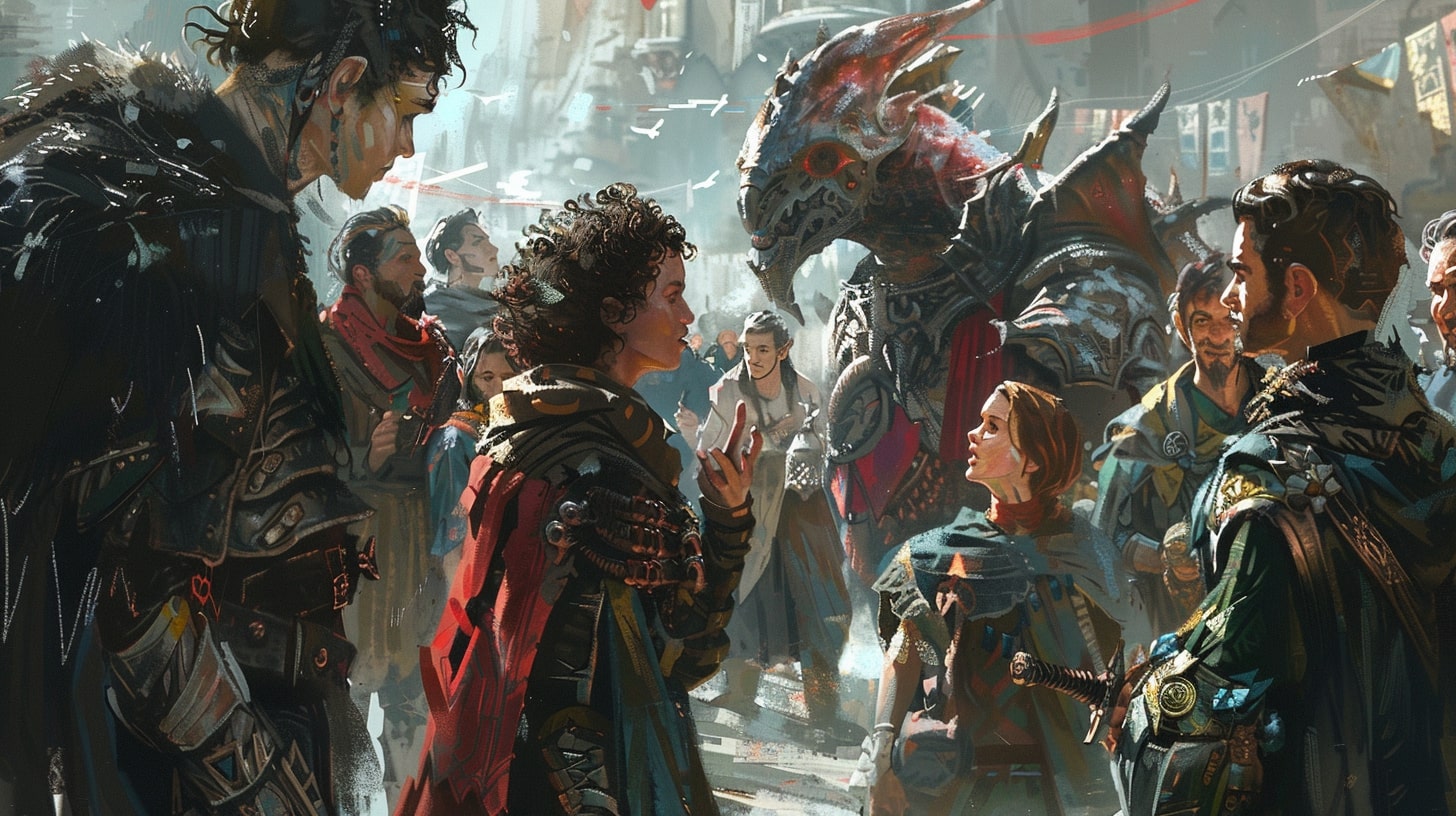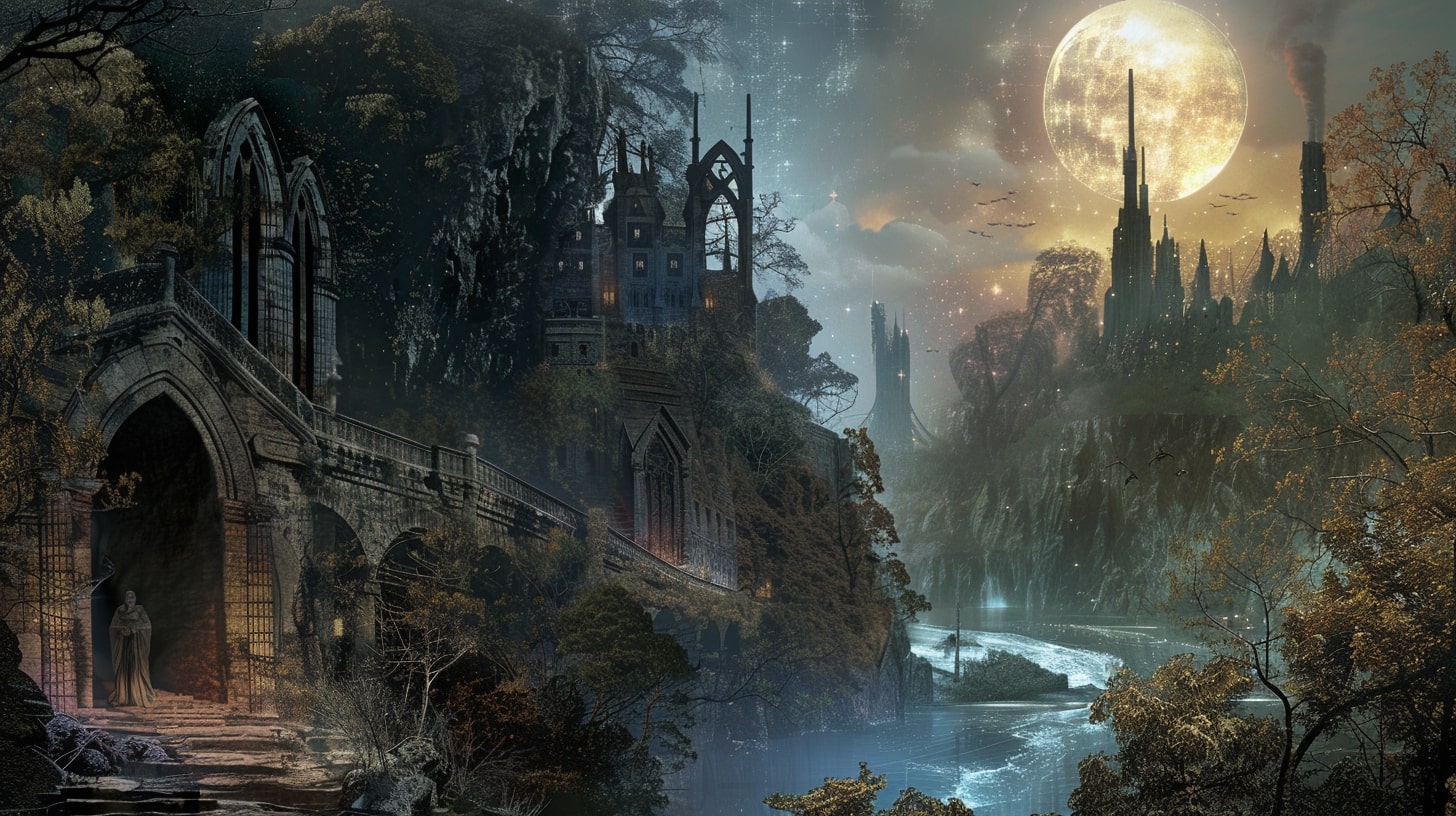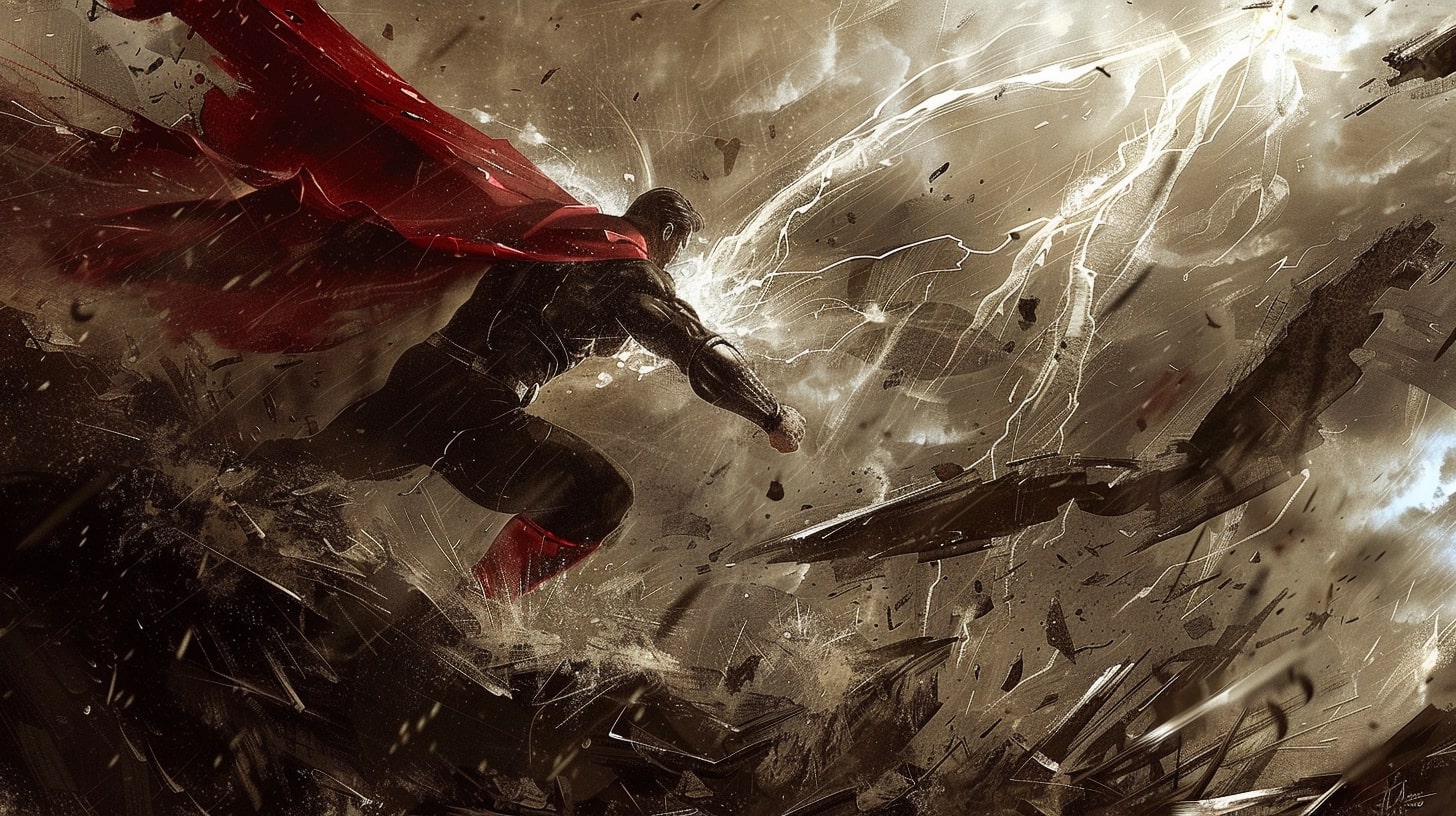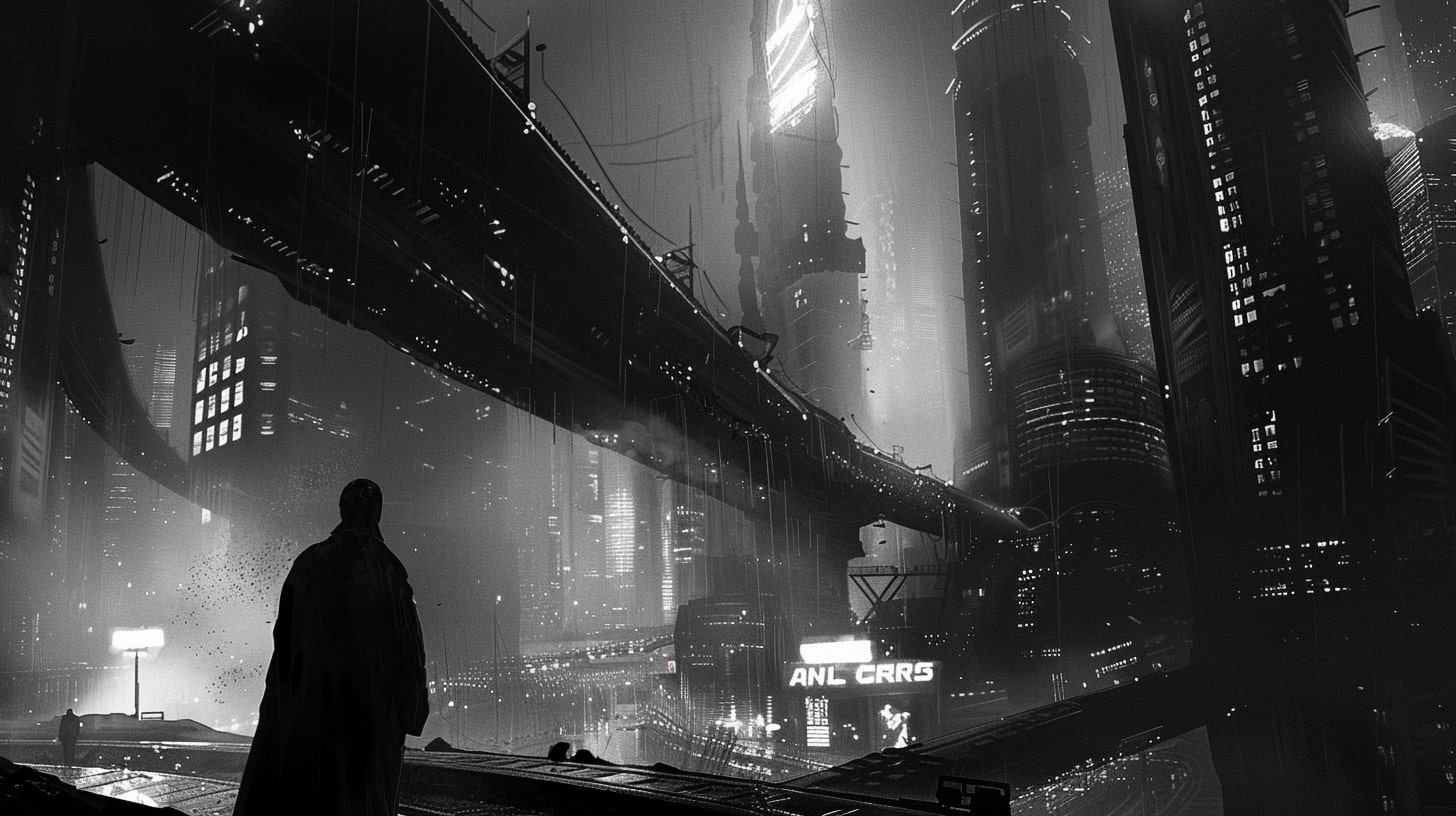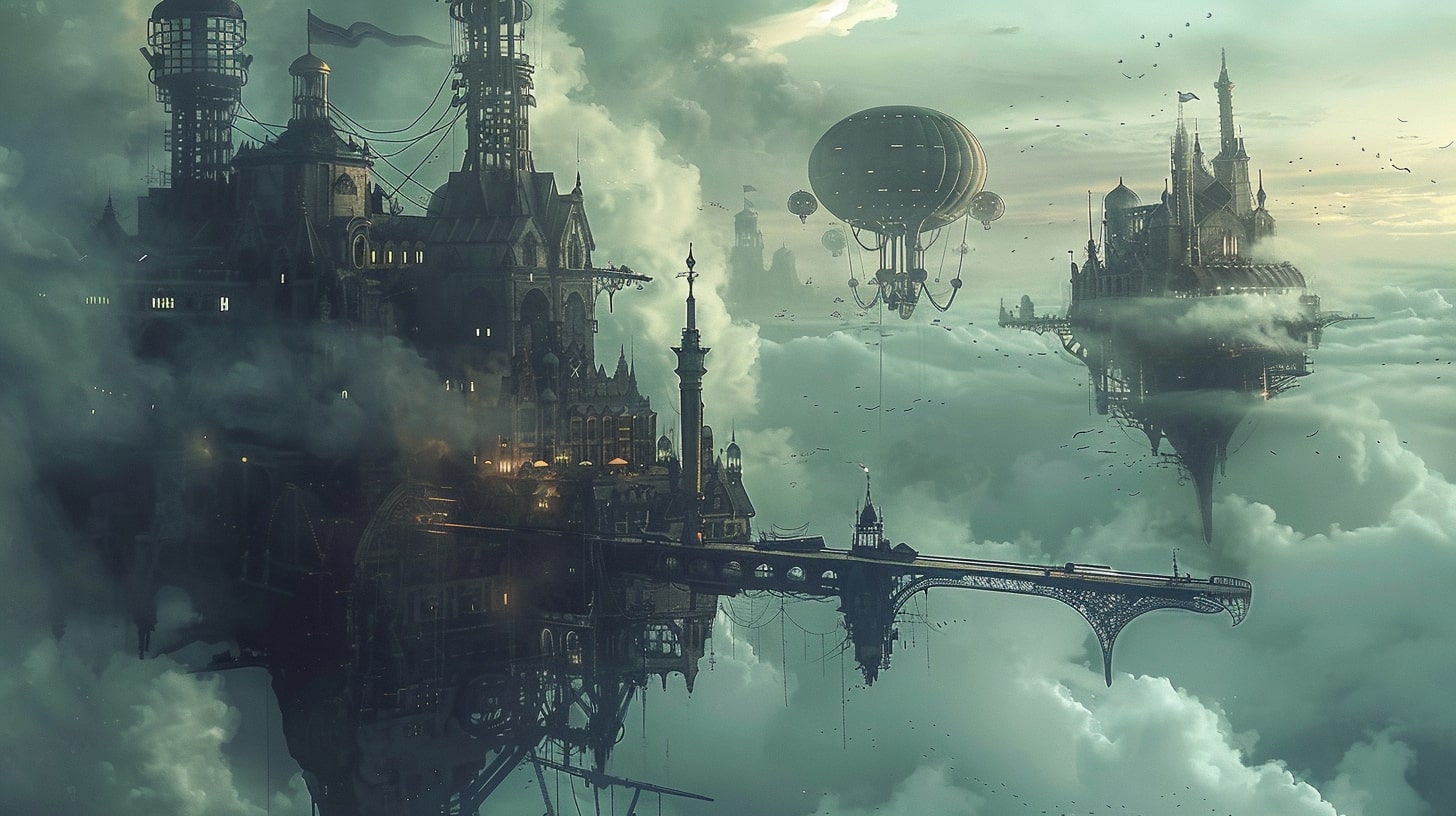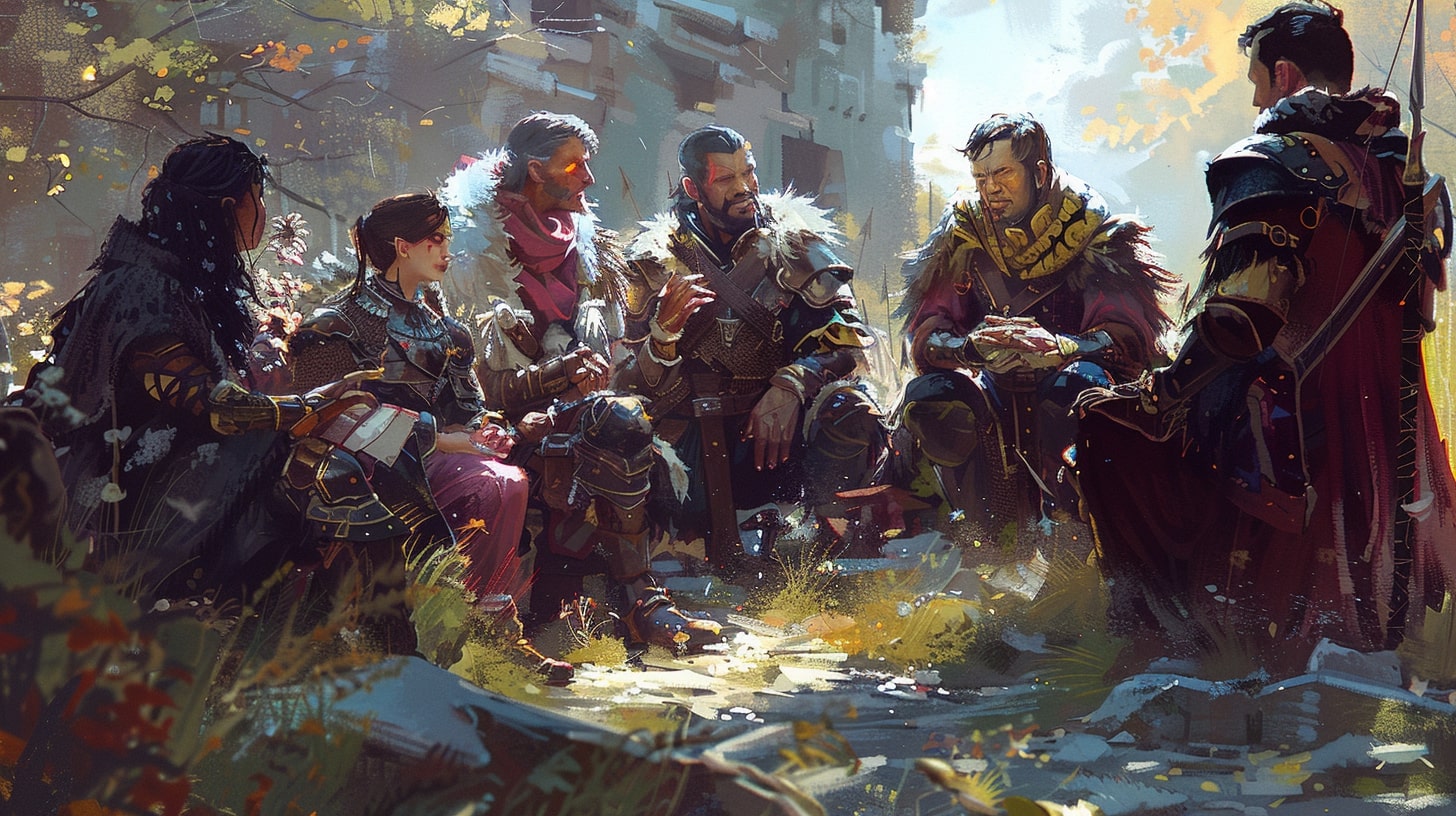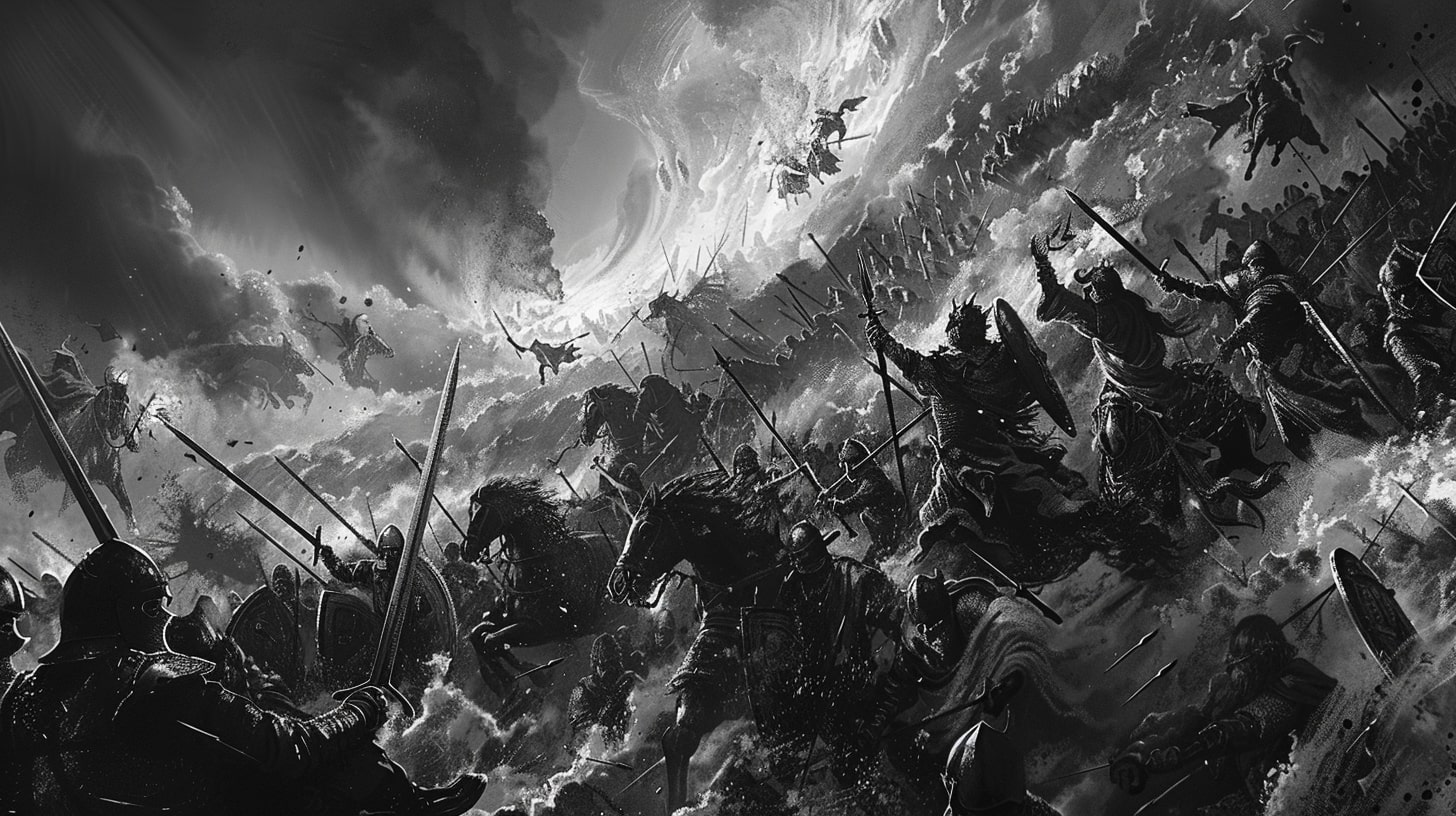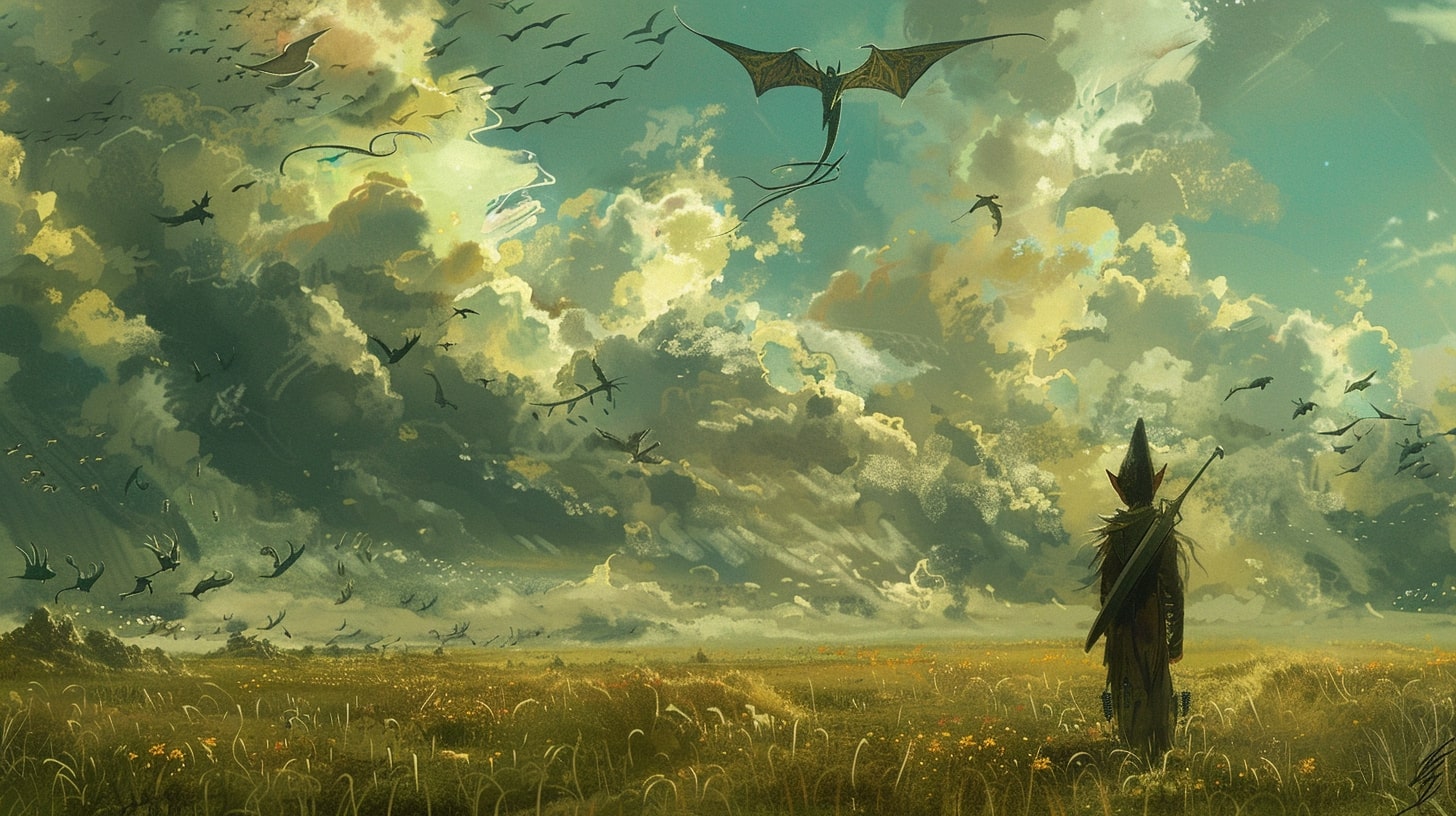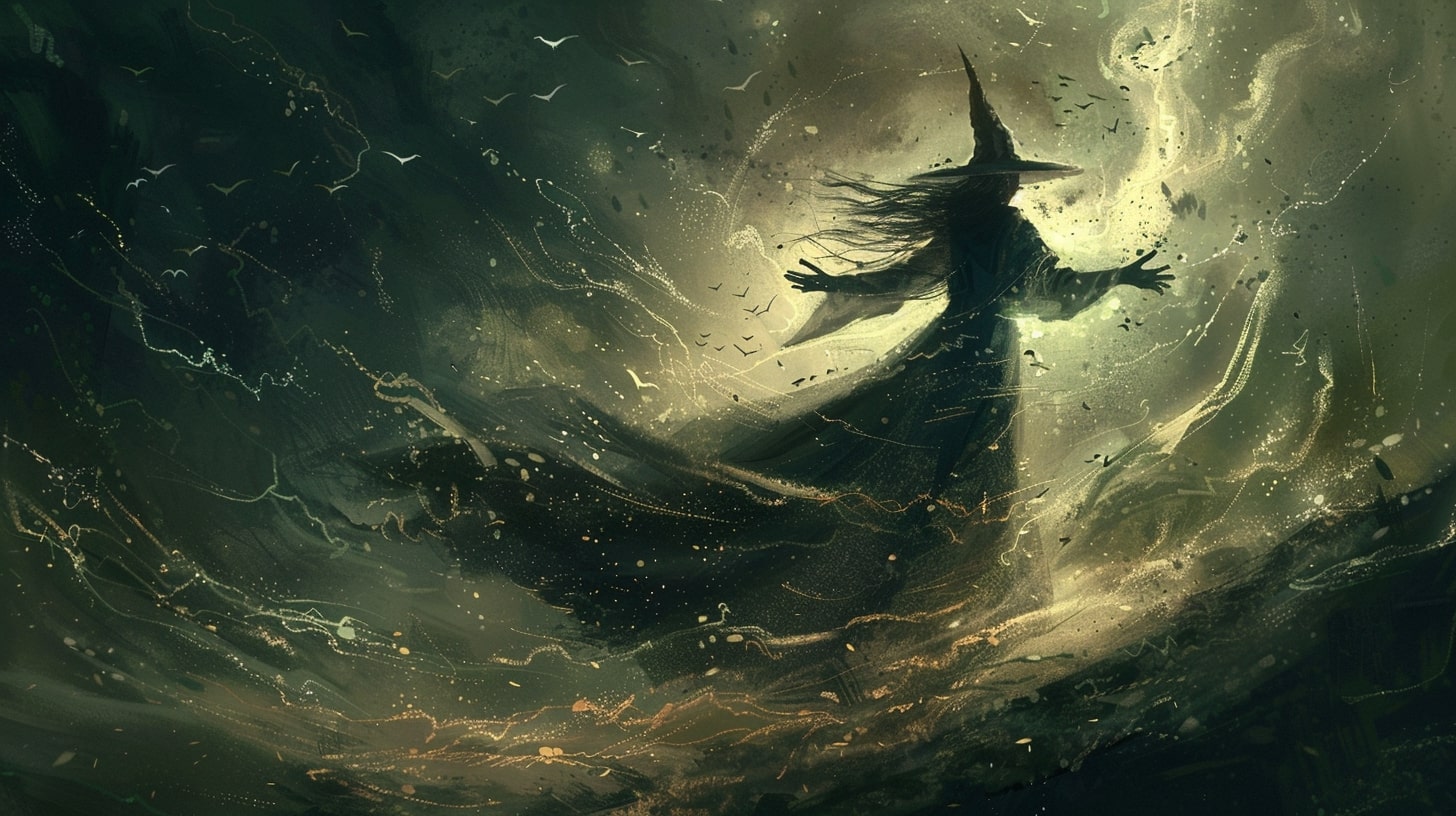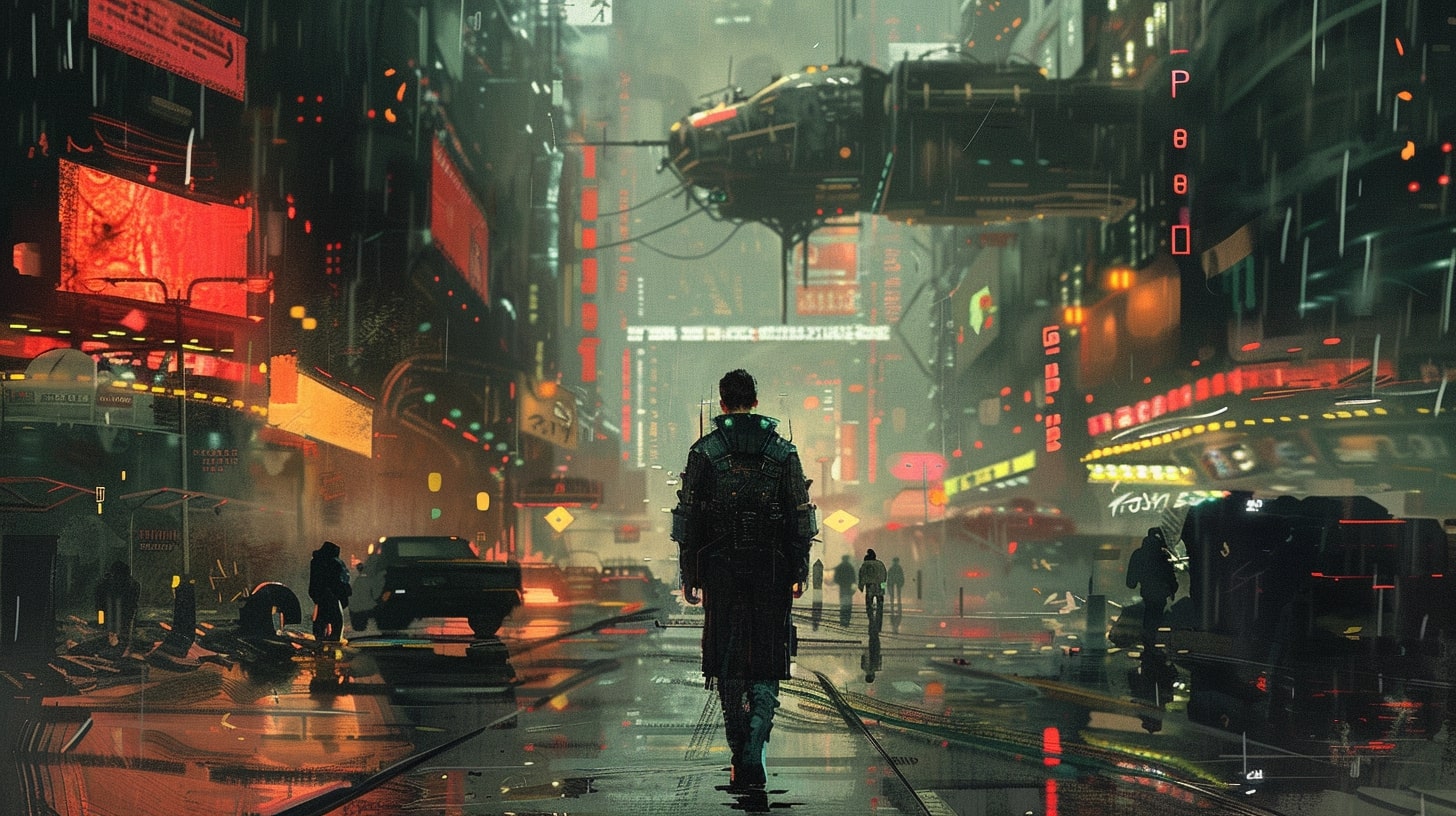Introduction to Writing Urban Fantasy
If you have a passion for writing and a love for the magical and the modern, urban fantasy might be the genre for you.
Urban fantasy is becoming more and more popular as people from many different backgrounds hop into the fantasy writing arena. And it makes sense.
We all don’t know about castles and farms, but we definitely understand skyscrapers and the concrete jungle. This makes writing urban fantasy a lot easier for some people.
But if you’re going to do it then you might as well do it right and I’m going to show you how.
What is Urban Fantasy?
Urban fantasy is a genre that blends elements of fantasy and the supernatural with contemporary settings. Unlike traditional fantasy, which often takes place in entirely fictional worlds, urban fantasy brings fantastical elements into our modern-day world. This genre allows you to explore mythical creatures, magic, and otherworldly phenomena within the familiar backdrop of cities, towns, and urban environments.
In urban fantasy, the fantastical and the everyday coexist, creating a unique and immersive reading experience. From vampires and werewolves roaming the streets to witches casting spells in coffee shops, urban fantasy introduces readers to a world where magic and reality intertwine.
Why Write Urban Fantasy?
Writing urban fantasy offers a multitude of exciting opportunities for authors. Here are a few reasons why you might want to consider diving into this genre:
Creative Freedom: Urban fantasy allows you to blend your imagination with the real world, giving you the freedom to create unique and captivating stories that resonate with readers.
Exploring Contemporary Issues: Urban fantasy provides a platform to explore modern-day issues and themes through a fantastical lens. You can tackle topics such as identity, social dynamics, and the human experience in a way that captivates and engages readers.
Wide Appeal: Urban fantasy has a broad readership that encompasses both fantasy enthusiasts and those who may not typically gravitate towards the genre. This opens up opportunities to connect with a diverse range of readers.
Flexibility: Urban fantasy offers flexibility in storytelling, allowing you to blend elements of other genres such as mystery, romance, or action. This versatility allows you to create a unique reading experience tailored to your writing style.
Fulfilling Reader Expectations: Readers of urban fantasy often have specific expectations, such as a balance between the fantastical and the realistic, well-developed characters, and an engaging plot. Meeting these expectations can provide a sense of satisfaction when crafting your story.
By writing urban fantasy, you can ignite your creativity and embark on a literary journey that combines the extraordinary with the ordinary. Whether you’re a seasoned writer or just starting out, urban fantasy offers a world of possibilities to explore and captivate readers.
Now that we’ve explored the basics of urban fantasy, let’s delve deeper into the process of building your urban fantasy world and creating compelling characters that will bring your stories to life.
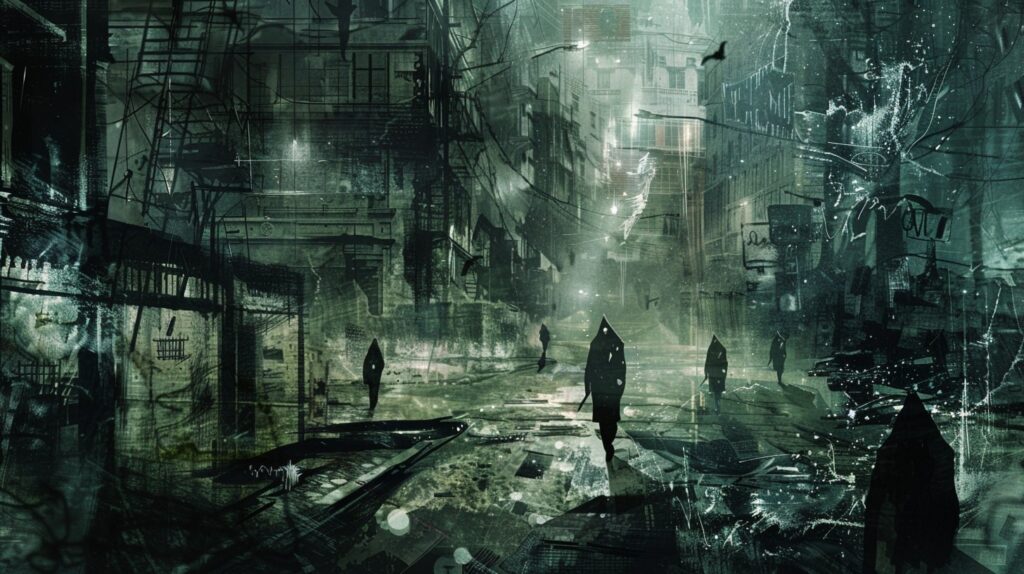
Writing Urban Fantasy: Building Your World
To create a captivating urban fantasy story, you need to build a rich and immersive world that seamlessly blends the urban and the fantasy elements. In this section, we will explore two crucial aspects of world-building for urban fantasy: setting the stage and intertwining fantasy with reality.
Setting the Stage: Urban vs. Rural
One of the defining characteristics of urban fantasy is its urban setting. The cityscape becomes an integral part of the story, shaping the atmosphere, conflicts, and possibilities. The hustle and bustle of a city can provide a vibrant backdrop for your characters’ adventures.
When choosing your setting, consider the unique aspects of urban environments. Think about the architecture, landmarks, and neighborhoods that will contribute to the overall ambiance of your story. You can draw inspiration from real-world cities or create your own fictional metropolis. Remember to incorporate sensory details and vivid descriptions to make your urban setting come alive for readers.
On the other hand, some urban fantasy stories may explore the interplay between urban and rural areas. The contrast between the two settings can create interesting dynamics and conflicts. For example, your characters might navigate between the enchanted streets of the city and the mystical landscapes of the countryside. This duality can add depth to your world and provide opportunities for diverse storytelling.
Intertwining Fantasy with Reality
Another key aspect of urban fantasy is the seamless integration of fantasy elements into the real world. Your task as a writer is to weave the magical and fantastical elements into the fabric of everyday life, creating a sense of wonder and believability.
Consider how magic, mythical creatures, or supernatural phenomena coexist with the mundane aspects of city life. Will there be secret magical societies hiding in plain sight? Are there hidden portals or mystical locations nestled within the city’s streets? Explore the possibilities and find ways to make the extraordinary feel plausible within the context of your urban setting.
To add depth to your world, you can also infuse your story with elements of urban mythology and folklore. Draw inspiration from the rich tapestry of urban legends, myths, and legends associated with cities around the world. Incorporate these elements to create a sense of familiarity and mystery that will resonate with readers.
Remember, in urban fantasy, the city itself becomes a character, playing an active role in shaping the story. By setting the stage effectively and intertwining fantasy with reality, you can create a world that readers will be eager to explore alongside your characters.
Next, let’s delve into the art of crafting compelling characters in urban fantasy. Discover how to bring protagonists with flair and antagonists with depth to life in your story.
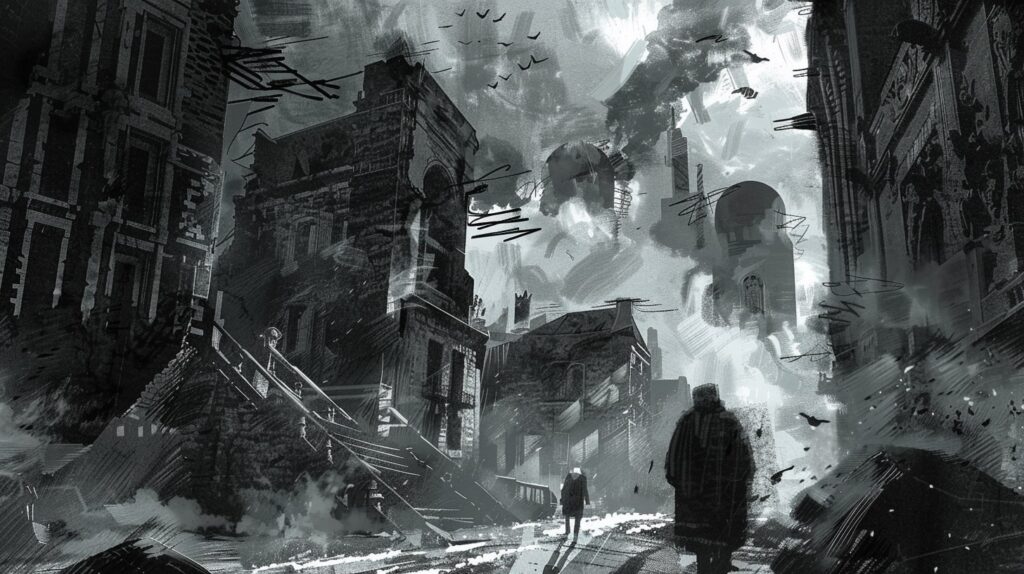
Crafting Compelling Characters
Creating captivating characters is essential when writing urban fantasy. In this genre, your characters play a pivotal role in immersing readers into the fantastical world you’ve built. To make your urban fantasy shine, focus on crafting protagonists with flair and antagonists with depth.
Protagonists with Flair
When developing your protagonist, give them a unique and memorable identity that resonates with readers. Consider their background, personality, and motivations. It’s important for your protagonist to have qualities that make them relatable and likable, while still being flawed and facing internal conflicts. This complexity adds depth to their character, making them more engaging.
To make your protagonist truly stand out, consider giving them distinctive traits, such as a special ability, a unique magical heritage, or an interesting profession. These elements can contribute to their journey and add a sense of excitement and wonder to the story. Additionally, make sure to create a well-rounded supporting cast that complements and challenges your protagonist, enhancing their growth and development.
Antagonists with Depth
Just as important as the protagonist is the antagonist. In urban fantasy, the antagonist can be a malevolent force, a supernatural being, or even a complex character with conflicting motivations. Crafting antagonists with depth is crucial for adding tension and driving the conflict in your story.
Consider delving into the antagonist’s backstory, exploring their motivations, and understanding why they oppose the protagonist. This will help you create a three-dimensional character rather than a one-dimensional villain. Giving your antagonist relatable qualities or a tragic past can make them more compelling and amplify the emotional impact of their actions.
To make the conflict between the protagonist and antagonist more engaging, highlight the parallels and contrasts between them. This can create intriguing dynamics and raise thought-provoking questions for readers. Remember to portray the antagonist’s actions as a result of their own beliefs and desires, rather than simply being evil for the sake of it.
By crafting protagonists with flair and antagonists with depth, you can breathe life into your urban fantasy story. Pay attention to the intricate details that make your characters unique and relatable, while also challenging them with internal conflicts and external obstacles. Keep in mind that character development is an ongoing process throughout your story, allowing your protagonists and antagonists to evolve and surprise both you and your readers.
Plotting and Pacing
To create a captivating urban fantasy story, plotting and pacing are essential elements to consider. Balancing the fantastical aspects of your story with realistic elements and incorporating mythology and folklore can elevate your writing to new heights.
Balancing the Fantastical and Realistic
When plotting your urban fantasy story, it’s crucial to strike a balance between the fantastical and realistic elements. While the fantasy elements are what make urban fantasy unique, grounding them in a relatable reality helps readers connect with the story.
Consider the urban setting and how it interacts with the magical elements. The juxtaposition of the ordinary and the extraordinary can create a sense of wonder and intrigue. For example, you could place mythical creatures in everyday locations or integrate magic into the mundane aspects of city life.
To maintain a balanced plot, ensure that the fantastical elements serve the story and character development. Avoid overwhelming the narrative with excessive magical elements that may overshadow the plot or hinder the readers’ ability to engage with the story. By finding the right balance, you can create a compelling urban fantasy world that readers will be eager to explore.
Incorporating Mythology and Folklore
One of the hallmarks of urban fantasy is the incorporation of mythology and folklore into the narrative. Drawing inspiration from real-world myths and legends adds depth and richness to your story. It allows you to tap into the collective imagination and create a world that feels authentic and immersive.
Research different mythologies and folklore from various cultures to find elements that resonate with your story. Whether it’s reimagining well-known creatures or exploring lesser-known legends, incorporating these elements can bring a sense of familiarity or mystery to your urban fantasy world.
By weaving mythology and folklore into your plot, you can add layers of meaning and symbolism to your story. These elements can provide opportunities for character development, foreshadowing, and exploring themes relevant to your narrative. Be mindful of how these elements interact with your plot and characters, ensuring they enhance rather than distract from the overall story.
Incorporating mythology and folklore in your urban fantasy not only adds depth to your world but can also open doors to endless possibilities for future stories and exploration. Embrace the rich tapestry of the past and infuse it with your own unique vision to create a captivating urban fantasy narrative.
As you continue on your writing journey, remember to refer back to our previous sections on building your urban fantasy world, crafting compelling characters, and defining your magic system to ensure a cohesive and engaging story. Happy writing!
Next, let’s explore tips for writing engaging dialogue and polishing your urban fantasy writing for a truly immersive reading experience.
Magic Systems and Rules
When writing urban fantasy, developing a well-defined magic system is crucial to create a believable and immersive world for your readers. A solid understanding of your magic system will help you maintain consistency throughout your story and avoid plot holes. In this section, we will explore two important aspects of magic systems: defining your magic system and establishing limitations and consequences.
Defining Your Magic System
To begin, you need to establish the rules and mechanics of your magic system. Consider the source of magic in your world. Is it inherent in certain individuals, derived from artifacts, or a force that can be harnessed by anyone? Determine the origin, potential scope, and accessibility of magic within your urban fantasy setting.
Next, define the types of magic present in your world. Are there elemental powers, telekinesis, or the ability to manipulate emotions? By establishing different branches or schools of magic, you can add depth and variety to your story. It’s important to strike a balance between creativity and coherence, ensuring that your magic system aligns with the overall tone and themes of your urban fantasy narrative.
To assist in organizing your magic system, consider creating a table to outline the different types of magic, their characteristics, and the rules governing their usage.
| Type of Magic | Description | Rules |
|---|---|---|
| Elemental Magic | Manipulation of the elements (fire, water, air, earth) | Cannot control more than one element at a time |
| Illusion Magic | Creation of illusions and sensory manipulation | Limited by the caster’s imagination |
| Healing Magic | Ability to heal injuries and cure ailments | Drains the caster’s energy |
Remember, consistency is key. Once you establish the rules of your magic system, ensure that they remain constant throughout your story. This will help readers understand and engage with the magical elements of your urban fantasy world.
Establishing Limitations and Consequences
While magic can add excitement and wonder to your urban fantasy story, it’s important to establish limitations and consequences to avoid overpowering your characters or diluting the conflicts they face. Limitations can stem from the source of magic, the skill level of the characters, or the energy required to perform magic.
For example, you might decide that using magic is physically and mentally draining, limiting the frequency and duration of its use. Alternatively, you could introduce a system where magic comes at a cost, such as a sacrifice or the need for specific ingredients.
By imposing limitations, you create tension and challenges for your characters, forcing them to make strategic decisions and face the consequences of their actions. This adds depth to your story and prevents magic from becoming a convenient solution for every problem.
Consider the following table to outline limitations and consequences for your magic system:
| Limitation | Consequence |
|---|---|
| Magic Exhaustion | Character experiences fatigue and weakness after using magic |
| Forbidden Magic | Casting forbidden spells results in severe consequences, such as attracting dark forces |
| Magic Dependency | Characters become reliant on magic and struggle when unable to access it |
By defining your magic system and establishing limitations and consequences, you can ensure that the magic in your urban fantasy story remains intriguing, balanced, and consistent. This will enhance the overall storytelling experience and captivate your readers. For more tips on crafting engaging fantasy worlds, check out our article on how to write fantasy novels.
Writing Engaging Dialogue
Engaging dialogue is a crucial element in writing urban fantasy that brings your characters and their world to life. It allows readers to connect with the characters on a deeper level and immerse themselves in the fantastical urban settings you’ve created. In this section, we’ll explore two important aspects of writing dialogue for urban fantasy: capturing the urban voice and balancing dialogue and narrative.
Capturing the Urban Voice
When writing urban fantasy, it’s essential to capture the unique voice and rhythm of the urban setting. This can be achieved by incorporating slang, colloquialisms, and idiomatic expressions that are characteristic of the urban environment. These linguistic elements help to create a sense of authenticity and make the dialogue feel natural.
To capture the urban voice effectively, immerse yourself in urban culture through various mediums. Pay attention to how people in urban areas speak, the phrases they use, and the tone of their conversations. This can provide valuable insights into the language and speech patterns that will resonate with your urban fantasy audience.
Additionally, consider the diversity and multicultural aspects of urban settings. Incorporating different dialects, accents, and cultural nuances in your characters’ dialogue can add richness and depth to their interactions. This inclusivity allows readers to connect with characters from various backgrounds and creates a more realistic portrayal of urban life.
Balancing Dialogue and Narrative
While dialogue plays a significant role in urban fantasy storytelling, it’s important to strike a balance between dialogue and narrative. Too much dialogue can make the story feel disjointed, while too much narrative can slow down the pacing. Finding the right balance is crucial for maintaining a smooth flow and keeping readers engaged.
To achieve this balance, use dialogue to reveal character traits, advance the plot, and provide insight into the urban fantasy world you’ve created. Show the characters’ personalities through their speech patterns, quirks, and reactions. Incorporate dialogue that moves the story forward, conveys emotions, and builds tension.
At the same time, intersperse narrative elements to provide context, describe the setting, and delve into the characters’ thoughts and feelings. This narrative layer enhances the depth of the story and helps readers connect with the characters on an emotional level.
Remember to use dialogue tags and descriptive beats to attribute speech and provide clarity to the reader. These tags can help differentiate between characters, indicate their emotions, and enhance the overall readability of the dialogue.
By striking the right balance between dialogue and narrative, you can create a captivating urban fantasy story that keeps readers enthralled from start to finish.
In the next section, we’ll explore some tips for polishing your urban fantasy writing to ensure that your story shines brightly.
Tips for Polishing Your Urban Fantasy Writing
To make your urban fantasy writing shine, consider the following tips:
Show, Don’t Tell
In urban fantasy, it’s essential to immerse your readers in the vivid world you’ve created. Instead of simply telling them what is happening, show the details through descriptive language and sensory imagery. Allow your readers to experience the sights, sounds, and emotions of your urban fantasy world. By painting a picture with your words, you can captivate your audience and bring your story to life.
Creating Tension and Suspense
Tension and suspense are vital elements in any engaging story, including urban fantasy. To keep your readers on the edge of their seats, introduce conflicts, challenges, and mysteries that drive the plot forward. Use cliffhangers, unexpected twists, and moments of danger to build anticipation and keep the reader eagerly turning the pages. By carefully pacing your story and strategically revealing information, you can create a sense of urgency and suspense that will keep your readers hooked.
Editing and Revising
Polishing your urban fantasy writing requires thorough editing and revising. Once you’ve completed your first draft, take the time to review and refine your work. Look for clarity, consistency, and any areas that may need improvement. Pay attention to grammar, punctuation, and sentence structure to ensure a smooth and enjoyable reading experience. Consider seeking feedback from beta readers or joining a writing group to gain valuable insights and perspectives on your work.
Remember, the editing process is an opportunity to refine your storytelling and enhance the quality of your writing. Be open to constructive criticism and be willing to make revisions that will strengthen your urban fantasy narrative.
By following these tips, you can polish your urban fantasy writing and create a captivating story that will transport readers to a world where magic and reality intertwine. For additional guidance on writing fantasy novels, check out our article on how to write fantasy novels. And if you’re looking for more fantasy writing tips, visit our comprehensive guide on fantasy writing tips.
Now go forth and let your creativity ignite as you craft an urban fantasy tale that will leave readers spellbound!
